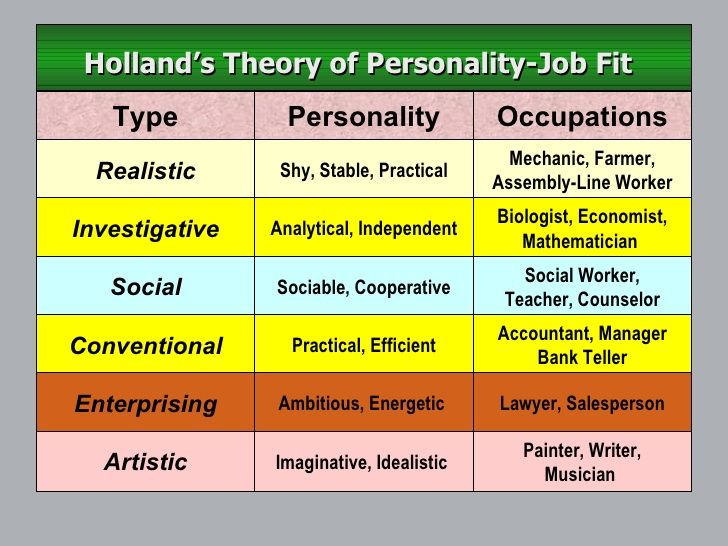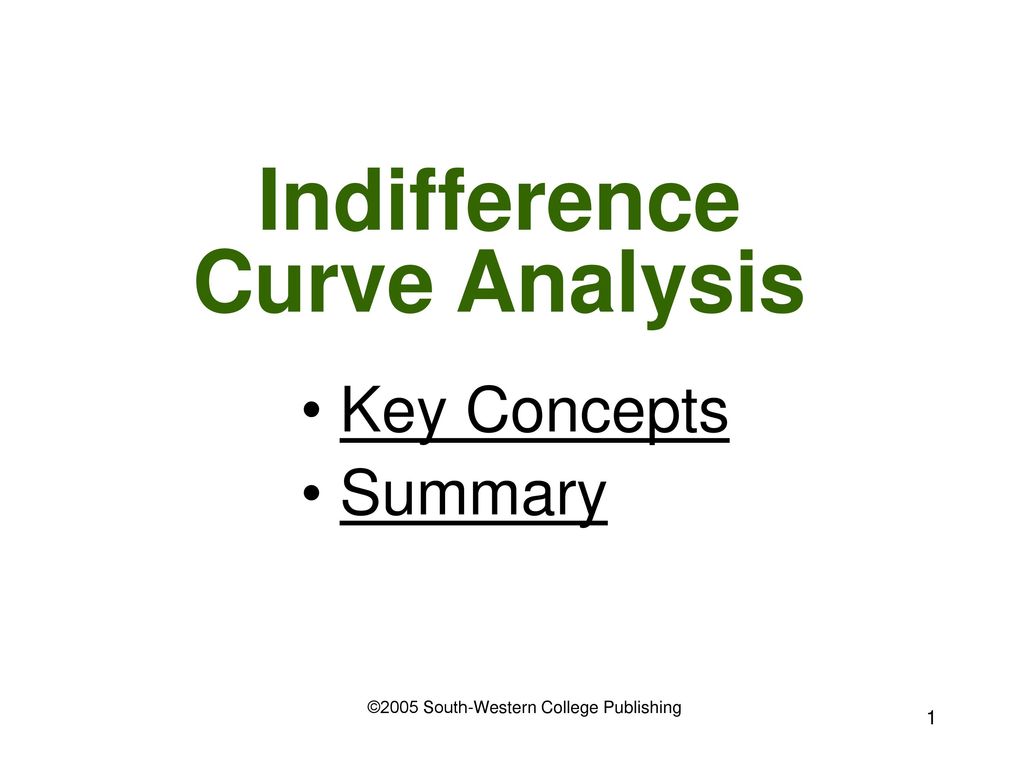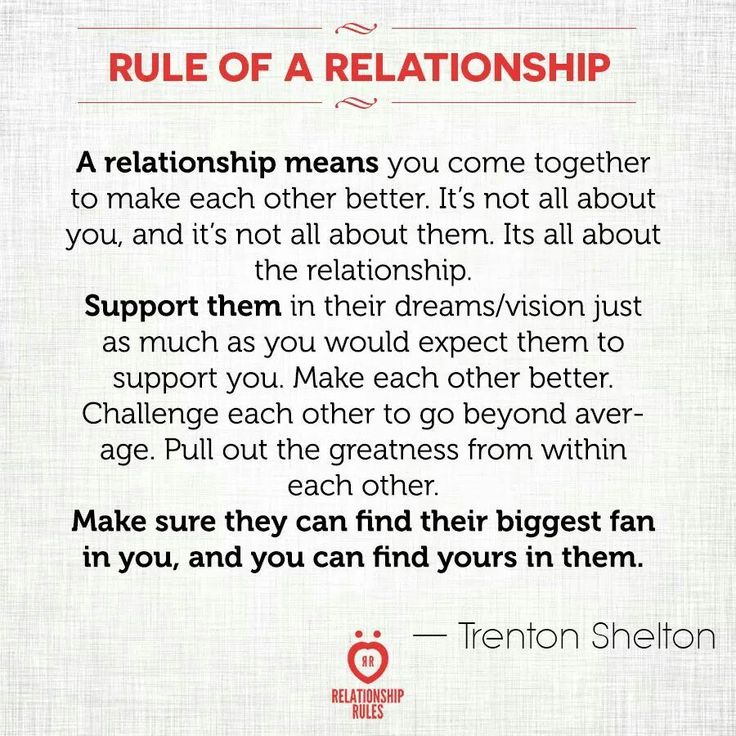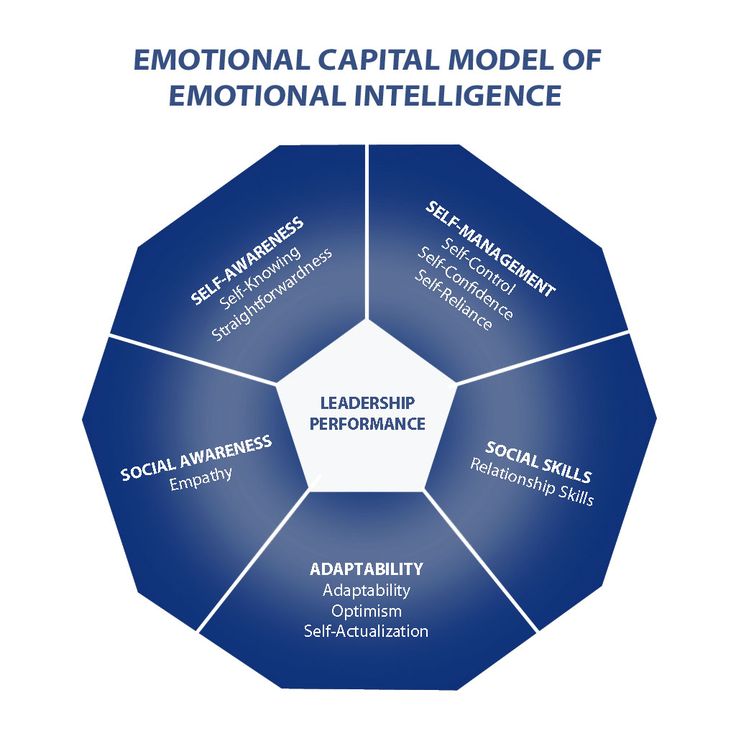Fighting parental alienation
Parental Alienation: What Is It and How Do You Fight Back?
What is Parental Alienation?
Parental alienation is a term used to describe a process by which one parent tries to cause the child to reject, fear, or avoid contact with the other parent. Read on to learn about how to fight back.
The term “parental alienation” comes from the term “parental alienation syndrome” coined by child psychiatrist Richard Garner in 1985. Gardner described it as “a disturbance in which children are obsessed with deprecation and criticism of a parent — denigration that is unjustified and/or exaggerated” because of one parent’s conscious, subconscious, or unconscious behaviors that affect the child’s perception. The medical community has widely rejected the use of the word “syndrome” and the term is not in their official list in the DSM-5.
While the medical community has not officially recognized “parental alienation syndrome,” most people use the term “parental alienation” to describe similar behavior. Because parental alienation is a debated concept, the term carries varying weight with Colorado judicial officers and child custody experts. Because of the controversy surrounding the term, practitioners and parties should be cautious in using it and may want to use different terms such as “gatekeeping” or “coaching.”
Parental alienation cases are often very difficult because (1) it is difficult to prove, (2) it can be difficult to disprove, and (3) even if proven, it is difficult to find a solution that fixes the problem.
No couple want to think about the end of their relationship, newlyweds especially, but planning for all potential outcomes is vital for protecting your assets. These are the purposes of prenuptial and postnuptial agreements, written and signed before or after the wedding, respectively. These agreements cover both future and current assets, and can be thought of as insurance for a worst-case scenario.
- What is Parental Alienation? Parental alienation describes the process, usually intentional, by which a parent conveys through words, actions, or behaviors to the child that the other parent (the “targeted parent”) is dangerous, unsafe, abusive, or “bad,” which results in the child becoming fearful or avoidant of the targeted parent.

- What should I do if I am being accused of parental alienation? If you are accused of parental alienation, ask the other parent to describe the specific behaviors they have observed that make them think that you are alienating them. Take some time to reflect on your behavior and ask yourself whether you have indicated that you dislike the other parent. If you think that might be the case, try to speak more positively of the other parent. For example, praise the child for a trait they share with the other parent, put up photos of the other parent in the child’s room, and even state that you like the other parent.
- What should I do if I am being alienated by the other parent? Begin documenting everything you can and consider enrolling the child in therapy. If you think the parental alienation is severe, you should consider filing a motion to modify parenting time to limit the alienating parent’s parenting time.
- How do you stop and combat parental alienation? To stop parental alienation, work to maintain a positive, loving relationship with the child so that the child feels safe with you.
 Consider speaking with the other parent about behaviors you’ve noticed. If the alienation continues, consider parenting classes, therapy, and going to the Court for help.
Consider speaking with the other parent about behaviors you’ve noticed. If the alienation continues, consider parenting classes, therapy, and going to the Court for help. - How do you prove parental alienation is happening? Alienation can be very difficult to prove in court, but you should start documenting any changes in the child’s behavior. You should also speak with people who know the child well, like teachers and coaches and ask if they’ve noticed any changes as well, as they can serve as witnesses. Often, proving alienation requires the help of an expert witness.
Is Parental Alienation Happening in My Case?
Parental alienation occurs in high conflict divorced families in which one or both parents dislike the other parent.
It is essential to distinguish between types of “alienating” or “gatekeeping” behavior. At a basic level, there may be justified or unjustified gatekeeping. Gatekeeping, meaning a parent is preventing or limiting contact between the child the other parent, may be warranted when the parent has abused the child or others. Unjustified gatekeeping aligns with what people commonly call parental alienation, which is when the other parent acts in such a way to cause the child to dislike or become fearful of the other parent, even though the other parent has not done anything to cause that reaction in the child.
Unjustified gatekeeping aligns with what people commonly call parental alienation, which is when the other parent acts in such a way to cause the child to dislike or become fearful of the other parent, even though the other parent has not done anything to cause that reaction in the child.
Even if a party engages in justified gatekeeping, there is a possibility that the other parent will claim the protective behaviors are unjustified and thus are attempts to alienate the child from the other parent. Practitioners have noticed a gender-bias trend in cases in which the mother engages in “justified gatekeeping” in the face of abuse committed by the father. For example, in a recently released study analyzing cases involving abuse or alienation, the study made the following findings:
- When fathers alleged mothers were alienating, regardless of abuse claims, they took custody away from her 44% of the time. When the genders were reversed, and fathers started out with the children, mothers took custody from fathers only 28% of the time.

- Fathers were overall much more likely to win than mothers by claiming alienation.
- When mothers claimed any type of abuse, if fathers responded by claiming parental alienation, then the mothers were twice as likely to lose custody as when fathers did not claim alienation. In the study’s stark conclusion: “alienation trumps abuse.”
- Even when the father’s abuse was considered by the court to have been proven, the mothers who were alleging the abuse still lost custody in 13% of the cases. By contrast, fathers lost custody only 4% of the time when a mother’s abuse was considered proved.
Thus, if you are accused of alienating, you must act quickly to counteract the narrative, especially if you are a woman, as being labeled as “alienating” can be extremely damaging.
In cases of unjustified gatekeeping, an alienating parent can act in ways that result in the child being alienated from the targeted parent. The alienating parent may blame the targeted parent for splitting the family.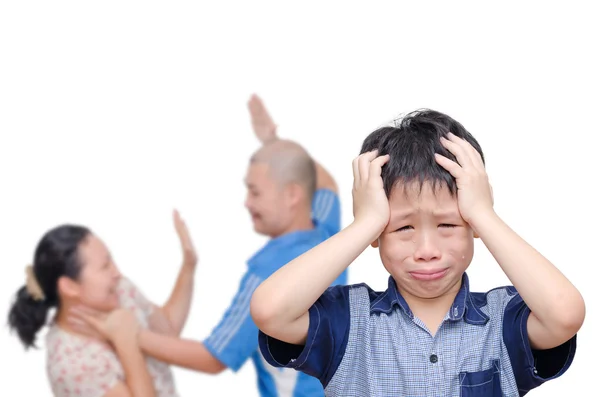 The alienating parent may remove from the house all photographs and similar mementos related to the targeted parent or refuse to talk about the targeted parent. The alienating parent may question the children about the targeted parent and express their disapproval about some behavior. The alienating parent may exhibit extreme inflexibility with the parenting plan as a pretext to deny the other parent parenting time. They could also display extreme sadness every time the child goes to the targeted parent’s house so that the children feel bad about parenting-time exchanges.
The alienating parent may remove from the house all photographs and similar mementos related to the targeted parent or refuse to talk about the targeted parent. The alienating parent may question the children about the targeted parent and express their disapproval about some behavior. The alienating parent may exhibit extreme inflexibility with the parenting plan as a pretext to deny the other parent parenting time. They could also display extreme sadness every time the child goes to the targeted parent’s house so that the children feel bad about parenting-time exchanges.
Occasionally, I see parents wage campaigns of denigration toward the targeted parent. Sometimes this leads to a situation where the child cannot display positive feelings about the targeted parent because they are constantly being encouraged to express negative feelings. This is evident when the child “parrots” or repeats perceived flaws or negative attributes about the targeted parent. The child may be unable to adequately explain why they have these negative feelings. It can also be displayed if the child cannot express any “gray area” or neutral feelings about the targeted parent.
It can also be displayed if the child cannot express any “gray area” or neutral feelings about the targeted parent.
Other behavior that may be characterized as alienating could include one parent’s over-involvement in the child’s life during the other parent’s parenting time. The alienating parent can (unnecessarily) go over emergency or 911 procedures with the children before going over to the targeted parent’s house, or the alienating parent can even provide the child with different ways to contact them, such as telling the child to contact them at school or giving the child a secret cell phone. The alienating parent can call or text the child excessively on the other parent’s time “just to check in” even if the child hasn’t been over at the targeted parent’s house for long.
How Do I Show a Court Parental Alienation Is Happening?
How to Document Parental Alienation.The most helpful thing a targeted parent can do is to remain open to hearing what the child has to say, not only because it fosters and builds on the relationship between the child and targeted parent, but it also encourages the child to speak freely.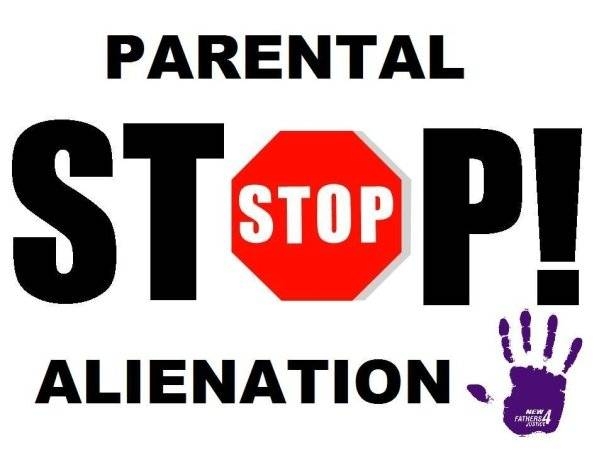
The most challenging aspect of alienation is that is can be very subtle and difficult to prove. The first place to start is to keep a journal of things the child is telling you and how the child appears while telling you. With alienation, it is crucial to show a pattern, which may mean keeping track with a calendar to show the Court later.
For example, if every Sunday night after leaving dad’s house, the child expresses his desire to live with dad full time, but doesn’t really otherwise express that sentiment otherwise, showing that pattern can be compelling evidence. It is helpful to know not just what the child said, but also how the child said it. Does the child tearfully say she doesn’t want to live with you just after seeing mom? Or does the child express it matter-of-factly after some time at home? Tracking as many details as possible may be important for your case.
Before Going to Court.Besides documenting the child’s behaviors that you believe result from alienation, consider enrolling the child in therapy.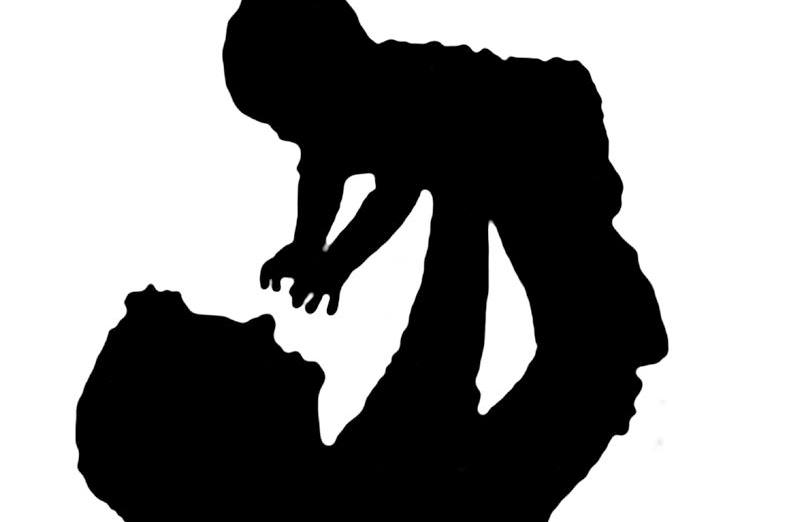 While therapists are unlikely to testify for fear of tarnishing the patient-doctor relationship between the therapist and child, a therapist can help the child navigate his or her negative feelings toward the targeted parent and help the child recognize “real” vs. “imaginary” fears. Also, if a child custody expert later becomes involved in the case, the child’s therapist will be a valuable resource for the child custody expert to understand if the child is being alienated and how it is affecting the child.
While therapists are unlikely to testify for fear of tarnishing the patient-doctor relationship between the therapist and child, a therapist can help the child navigate his or her negative feelings toward the targeted parent and help the child recognize “real” vs. “imaginary” fears. Also, if a child custody expert later becomes involved in the case, the child’s therapist will be a valuable resource for the child custody expert to understand if the child is being alienated and how it is affecting the child.
While counterintuitive at first, a targeted parent may want to consider attending therapy or attending a parenting class. Being the targeted parent is stressful, isolating, and may feel like the damaged relationship is too difficult to repair. You may find going to therapy can help you cope and help you develop parenting strategies. Going to a parenting class may also be helpful. It may help you discover how to prevent breakdowns in communication with the other parent, which may lessen their desire to alienate the child. It can also help you recognize if you are also participating in poor parenting behaviors. It is not uncommon for a parent who alleges the other parent is alienating the child to be engaging in similarly problematic behavior.
It can also help you recognize if you are also participating in poor parenting behaviors. It is not uncommon for a parent who alleges the other parent is alienating the child to be engaging in similarly problematic behavior.
If the family dynamic allows for it, talk to the other parent. Discuss whether you want to attempt talking about the issue with the other parent with an attorney. Sometimes it is helpful if the other parent did not realize that they are hurting the child’s relationship with the targeted parent. However, sometimes talking to the alienating parent will cause them to become defensive or to alienate the child more subtly. If the parent tries to go “underground” with their alienation, it can be harder to prove in Court later on. If you do decide to talk about it with the other parent, do not be accusatory. Try to state what behaviors you have seen the child display and try to frame the problem as something you can work on together as co-parents.
If there is time, these are steps you can take before going to court as judges often prefer to see families attempting to resolve issues before resorting to court. Also, the Court may order you to do these steps anyway and if you are already following them, it shows the Court that the issue may be more serious.
Also, the Court may order you to do these steps anyway and if you are already following them, it shows the Court that the issue may be more serious.
If alienation is occurring before the entry of any parenting time orders, you can raise this issue to the Court and present it at your permanent orders hearing. If you already have an established parenting plan, to have this heard by the Court, you need to file a post-decree motion. Most frequently, someone dealing with parental alienation files a motion to modify parenting time. It may be the best strategy to state that you don’t know what parenting time schedule would be best, but you want the Court to look at what’s been happening. More often than not, a motion to modify will be accompanied by a motion seeking the appointment of a child custody expert. The child custody experts appointed in Colorado would be a Child and Family Investigator (“CFI”) or a Parental Responsibilities Evaluator (“PRE”).
You will want to research whether you want a CFI or a PRE and who you want the court to appoint very carefully. Both a CFI and PRE will have you complete some initial paperwork to give them your family’s background and current issues. They will also meet with both parties, individually and with the children present, and will meet with the children personally.
A CFI is the least expensive option, as the CFI appointment statute caps the CFI’s fees at $2,750. However, a CFI may not have a mental health background; they are frequently attorneys. Thus, you want to ensure that they are equipped to analyze alienating behaviors.
A PRE is much more expensive; the costs can range from $8,000 to over $25,000. The reason for the increased costs is that a PRE is a mental health professional, and they have the discretion to conduct mental health evaluations of the parties involved. They usually meet with the parties and the children more often than a CFI, and their reports are usually much more detailed.
Both experts will analyze the case and make recommendations through the lens of the applicable standard (which is most often the Best Interest of the Child Standard). These recommendations are submitted to the Court and, if the parties cannot settle, the Court will often take the expert’s report into consideration when making a ruling. The expert can recommend not just changes to parenting time, but can also recommend therapy and other changes to the parenting plan.
Knowing how to communicate with the expert is critical. You will want to be clear and concise about your concerns, and you’ll want to at all times remain child-focused. Your first opportunity to lay out your case is in the initial paperwork to the expert, so you will want to be as detailed as possible. You may also want to send the expert pictures and text messages for them to review. You will also want to be careful when discussing alienating behaviors. Some experts do not use the word alienation in their work at all, so you will want to be clear about what is happening and how it is affecting the child without overanalyzing or quickly applying labels to the behavior or situation.
If you can show parental alienation is occurring and that the alienating parent is detrimentally affecting your relationship with the child, the Court can deal with it in a variety of ways. Often a Court will order therapy, to include individual therapy, family therapy, or reunification therapy, or a combination of therapies. The Court may also order more specific language in the parenting plan that forbids a parent from denigrating the other and provide specific ways that the parties should communicate with the child. The Court may also order that one or both parties attend parenting classes. The Court may order these things and not change the parenting time arrangement, which is why you should try to do as many of these things prior to going to court for help.
Research on this issue suggests that changes in parenting time arrangements in favor of the targeted parent is an effective strategy for improving child-parent relationships and reducing distress in the child, and the Court may order that the targeted parent have more parenting time.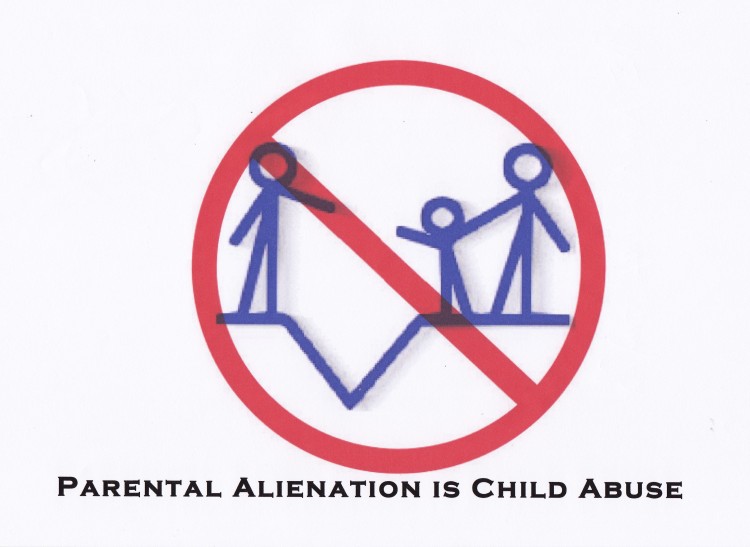 However, the Court may find that the alienating parent is harming the relationship between the child and the targeted parent, but still not change the parenting time schedule. As stated above, the most likely standard is the Best Interest of the Child Standard, and the Court may determine that even with the bad behavior, parenting time should not change. This is more likely to happen if the alienating parent already has limited time with the child, and the Court feels limiting it even more will cause the child becoming even more alienated. In other cases, if the alienation is severe enough, the Court may first order reunification therapy and a step-up parenting schedule that slowly gives the targeted parent more and more time with the child for longer stretches.
However, the Court may find that the alienating parent is harming the relationship between the child and the targeted parent, but still not change the parenting time schedule. As stated above, the most likely standard is the Best Interest of the Child Standard, and the Court may determine that even with the bad behavior, parenting time should not change. This is more likely to happen if the alienating parent already has limited time with the child, and the Court feels limiting it even more will cause the child becoming even more alienated. In other cases, if the alienation is severe enough, the Court may first order reunification therapy and a step-up parenting schedule that slowly gives the targeted parent more and more time with the child for longer stretches.
Conclusion
If you suspect parental alienation is occurring, it is important to intervene early before the alienating parent and the child become entrenched. Unfortunately, one of the most frustrating aspects of an alienation case is that sometimes, even after multiple experts and multiple court interventions, the alienating parent refuses to stop the alienating behavior.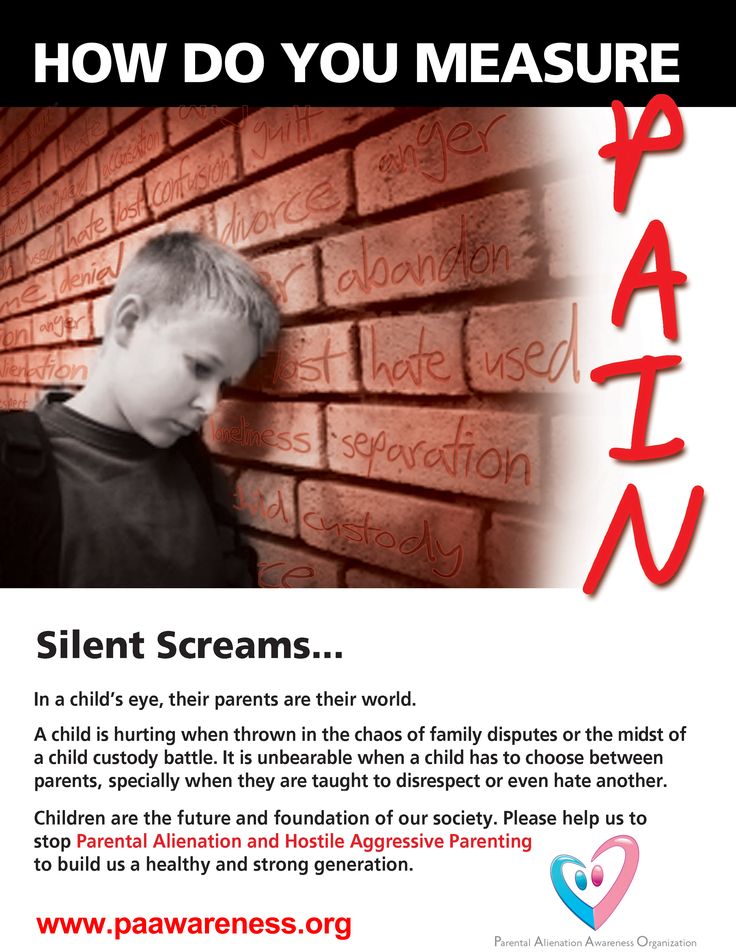 The Court could order supervised parenting time, but that is not a long-term solution. In those severe cases, the most important thing a parent can do is to maintain the relationship with the child. Unfortunately, the relationship may continue to be damaged until the child is older and possibly realizes what is going on. Thus, in severe alienation cases, it is imperative to keep the child enrolled in therapy as much as possible, so they can work through these feelings in as healthy a way as possible, which paves the way to repair the relationship in the future.
The Court could order supervised parenting time, but that is not a long-term solution. In those severe cases, the most important thing a parent can do is to maintain the relationship with the child. Unfortunately, the relationship may continue to be damaged until the child is older and possibly realizes what is going on. Thus, in severe alienation cases, it is imperative to keep the child enrolled in therapy as much as possible, so they can work through these feelings in as healthy a way as possible, which paves the way to repair the relationship in the future.
Schedule a Consultation
"*" indicates required fields
4 Tips To Fight Against Parental Alienation
What is parental alienation?
Parental alienation is the intentional or unintentional deterioration of a child’s relationship with one of their parents.
The symptoms of parental alienation can manifest themselves in many forms. A parent could deny the other parent access to the child. Or one parent could fill the child’s ear with hurtful lies about the other.
Parental alienation is common after divorce, but its roots often trace to when the parents are still together. It’s unclear how common it is, but one study estimates parental alienation occurs in 11-15% of divorces involving children.
That’s quite concerning considering the harmful effects parental alienation can have on kids. It’s been linked to anger problems, educational issues, eating disorders, and depression. Some have even gone as far to call parental alienation a threat to public health.
On the other side, shared parenting has been identified as the healthiest post-divorce arrangement for children.
Legal consequences of parental alienation
Although tragic that parental alienation is seemingly on the rise, it is at least somewhat encouraging that courts are beginning to acknowledge the harmful effect it can have.
As it pertains to a divorce case, parental alienation can be very difficult to prove in court.
However, according to Cordell & Cordell divorce attorney Camille Pedrick, the court does have a few options on how to fight parental alienation in court if it is proven that parental alienation is present:
- Contempt – A court can find the alienating parent in contempt of court and impose sanctions against them.

- Custody modification – The court can change the physical or legal custody of the child if they believe the alienation is causing harm.
- Reunification therapy – Most commonly, the court will mandate reunification therapy. In that circumstance, counselors are involved with the family in an attempt to counsel both the parent and the child to reunify the child with the alienating parent.
How to fight parental alienation: 4 Helpful Tips
If you feel you are a victim of parental alienation, here are a few tips to help you fight back and demonstrate parental alienation to the court.
1. Keep a journalWrite down the dates that the custodial parent blocked your access to the child, write down the situation, and write down the excuse used.
If you end up back in court, you can point to the specific dates and reasons in your journal to show the court where you tried to see your child. This allows the court to see habitual and continual excuses by the custodial parent.
When you are trying to prove parental alienation, ask to see your child via text message or email. This provides concrete evidence you can show the court proving your desire to see your child.
By sending your request in writing, you can avoid a he-said/she-said situation. Emails and text messages can help you catch your ex in a lie or help you show that they use the same repeated excuses for denying custody.
3. Seek counselingGoing to a therapist can help identify and end alienation, but it can also provide additional support to your case if you go to court.
Showing that you took steps to improve the situation will strengthen your case, and inviting your ex to attend will give an example that you are working to co-parent effectively. Even if she declines, that is a point in your favor.
4. Remain persistentIt is so discouraging when your ex refuses to let you see your child.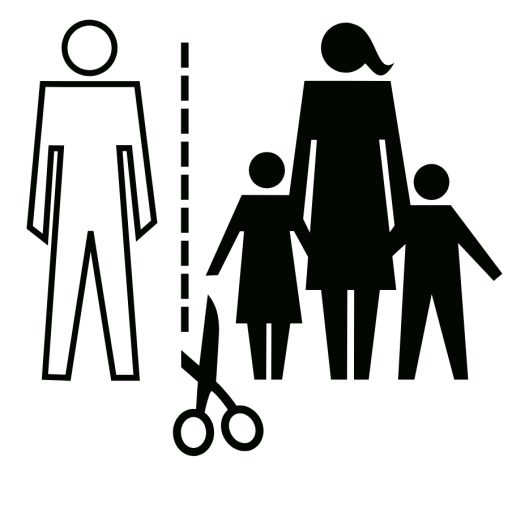 When your calls are getting blocked and she is stonewalling any and all of your communication efforts, it can all seem pointless.
When your calls are getting blocked and she is stonewalling any and all of your communication efforts, it can all seem pointless.
You can’t, however, give up. Your child needs you in his or her life, and the second you quit trying to be a father is the second your ex can say, “See? Dad doesn’t care.”
Keep fighting and keep doing what you know is right. Have faith that your efforts will eventually be rewarded.
Parental alienation is a terrible thing for any parent or child to experience. You can always contact a divorce attorney who can set out a clear and concise roadmap on what you need to do in order to preserve your parental rights.
PARENTAL ALIENATION - LiveJournal
Richard A. Warshak received his PhD in Clinical Psychology from the University of Texas Health Science Center in 1978. He is Professor of Clinical Psychology in the Department of Psychiatry at the University of Texas Southwestern Medical Center, advising and reviewing child custody cases.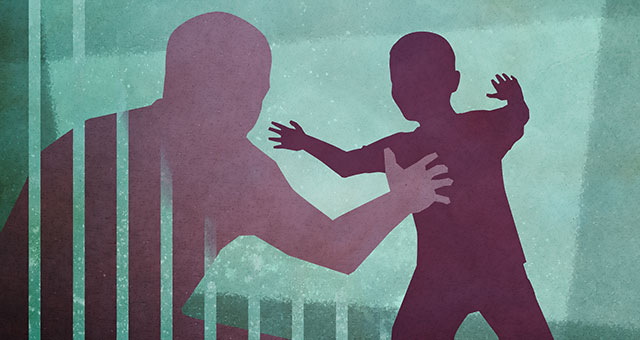 Studies the psychology of alienated children; children's involvement in custody disputes and the impact of divorce on children, child custody decisions, assisting estranged children to reunite with their parents. He also develops educational programs for alienated parents and interventions to help understand, prevent and overcome the breakdown of the parent-child relationship. He is the author of the well-known book (bestseller on the PAS problem) "The Poison of Divorce" (2002, 2010) and more than 10 scientific articles. Website - https://www.warshak.com/
Studies the psychology of alienated children; children's involvement in custody disputes and the impact of divorce on children, child custody decisions, assisting estranged children to reunite with their parents. He also develops educational programs for alienated parents and interventions to help understand, prevent and overcome the breakdown of the parent-child relationship. He is the author of the well-known book (bestseller on the PAS problem) "The Poison of Divorce" (2002, 2010) and more than 10 scientific articles. Website - https://www.warshak.com/
DO YOU THINK AN ALIENATED CHILD IS WELL ADJUSTED? dig deep
Published January 20, 2022
"Otherwise well adapted." This is how some professionals explain their inaction, instead of helping severely estranged children who reject relationships with good parents.
If a child does well in school, enjoys extracurricular activities, and behaves well in a parent's home, it is argued that the court's efforts to help the child overcome unreasonable disgust for the other parent are unreasonable and potentially coercive (child abuse). ).
).
The fallacy of this argument becomes apparent when we apply it to a child who has been physically or sexually abused. And this is exactly the point that Judge Christina Carle expressed during a summer 2021 panel discussion published in the American Bar Association's leading litigation journal, Litigation. (See my Facebook post on July 31, 2021.)
Former Attorney and Head of the Monroe County, New York Bureau of Domestic Violence and Child Abuse, District Attorney's Office and the first woman to serve as an Ontario District Judge, Judge Carle remarked, "I have there were countless cases in which the child was regularly abused, but at the same time did well in school, somehow coped. Such children could control their grades; but they could not control the abuse. . . . We must be very careful to simply dismiss concerns about high achievers, thinking that if they do well in school, then there can be no abuse towards them. We have to dig deeper. "
"
In other words, a child who appears to be well-adjusted or adapted in some environment may be suffering abuse in less obvious ways. If we ignore this child's suffering, we fail to protect the child from further harm and put him at risk for future problems.
Unreasonably alienated children do not recognize the harm in devaluation, denigration and renunciation of a parent. In most cases, they find that the other parent approves—perhaps even is satisfied—of their mistreatment of the alienated parent. If children realize that their negative attitude has been influenced by a parent who shares that attitude, they do not acknowledge it.
Well-meaning professionals who dedicate their careers to raising awareness and understanding of the plight of victims of domestic violence can exacerbate the problem. They may be too quick to assume that a parent who wants to cut the other parent out of a child's life is simply seeking to protect the child from abuse . (Of course, it is very important not to err in the opposite direction and not take into account the concerns of the parents without a full examination.) reflects what is best for the child and should be approved. Ideological prejudices mean that such professionals do not achieve what we should expect from a forensic expert, which is to study the issue from all reasonable points of view . According to Judge Karle, you need to dig deeper.
(Of course, it is very important not to err in the opposite direction and not take into account the concerns of the parents without a full examination.) reflects what is best for the child and should be approved. Ideological prejudices mean that such professionals do not achieve what we should expect from a forensic expert, which is to study the issue from all reasonable points of view . According to Judge Karle, you need to dig deeper.
The argument for letting children decide custody
Why do professionals who need to know the issue better want the child's preferences to dictate custody decisions? Part of their argument is that the severely alienated children thwarted previous attempts to help them. These children may be adamant about getting what they want, claim they will be miserable if they have to spend time with a rejected parent, and threaten to take action if they don't get their way. In other words, even if the court believes that it is better for the child to re-establish a relationship with the rejected parent, the court is powerless in the face of the child's violent demands .
The other part of the argument is that not only is it wrong to force a child to spend time with a parent whom the child claims to hate or fear, but it will also potentially traumatize the child. Critics condemn efforts to help the child regain positive thoughts and feelings about the parent and overcome unbalanced and distorted negative beliefs and memories as "causing children to adopt a different view of the parent".
Reiterate the argument for a “hands off” position that allows children to avoid good parents: children have the power to discourage attempts to reconnect with their parent because it is fraught with injury to children. The final stage of this position is the "otherwise well-adjusted" argument: even when we acknowledge that it is unfortunate for a child to reject a good parent if the child is doing well in other respects - school, friends, etc. - a global upheaval in the child's life is not worth trying to fix the alienation. The cure is worse than the disease itself.
The cure is worse than the disease itself.
How can an estranged child NOT be well adjusted?
Leaving aside the bizarre notion that a child who has an irrational aversion to a loving parent can be considered well-adjusted, and that the loss of a parent and other relatives is not in itself a sufficient reason for intervention, we could do we alleviate a child's aversion to the doctor, dentist, or school? What else is this child POORLY adapted to? Let me list these problems..
The child harbors a set of distorted thoughts and memories about the parent that do not correspond to reality.
Child acts in an authorized way to abuse a parent that is generally considered unacceptable and constitutes a serious behavioral problem.
A child who threatens to violate court-ordered custody is showing disrespect for the law and the authority of the court. How can you call a child who refuses to cooperate with the intentions of the court well brought up and adapted to life? If a child were to refuse to attend school, would we not see this refusal as a problem that needs to be understood and addressed? Or would we say that since the child wants to avoid school so badly, the best thing we can do is to capitulate to the child's demands?
The psychological processes that accompany irrational parental rejection and abuse can affect other relationships.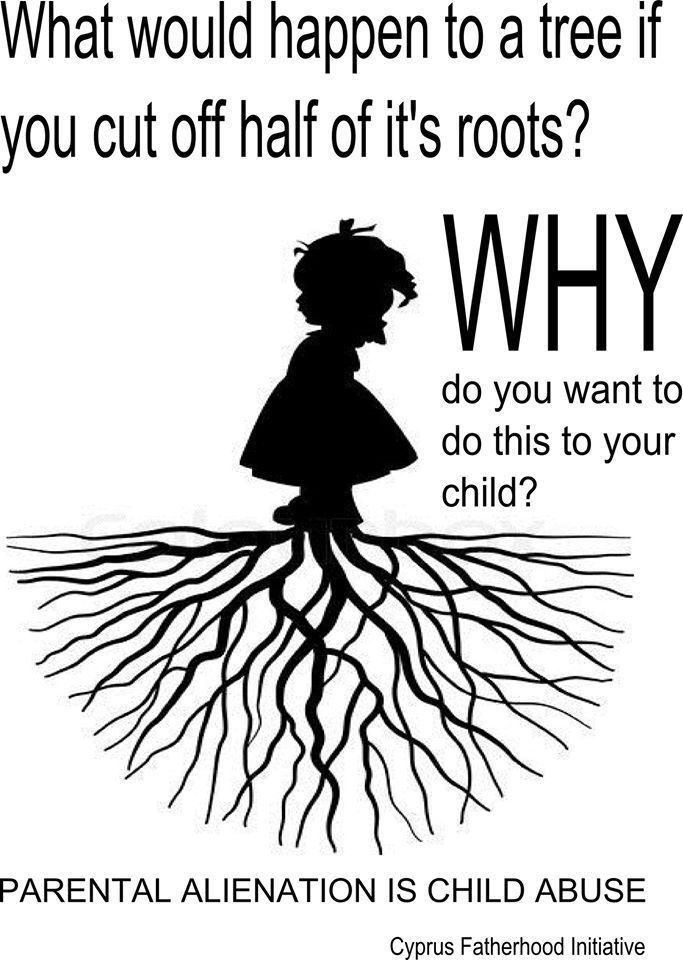 These processes include categorizing people as allies or enemies, contempt for those who see things differently, and inflated self-esteem in personal relationships.
These processes include categorizing people as allies or enemies, contempt for those who see things differently, and inflated self-esteem in personal relationships.
The child learns to deal with interpersonal conflicts through avoidance. Since some conflicts are common in most relationships, this child may be at risk of early termination of the relationship rather than improving conflict management and relationship maintenance skills. Thus, when conflict arises with friends, an estranged child who has been empowered to reject a parent tends to do the same with a friend: avoid conflict by ending the friendship, rather than strengthening conflict management skills.
A child who has abused or threatened violence against a parent and as a result no longer has to spend time with that parent tends to conclude that violence is an effective means to achieve goals. This is not the lesson we want to teach children.
Many children, who at first glance appear to be calm in abandoning their parent, grow up with large doses of shame, guilt, anger and remorse.
Unlike children who experience the death of a parent, estranged children cannot cope with their grief over the loss of a parent because at the time they thought they had lost nothing of value. It is only when they belatedly realize the magnitude of what they have lost and how they were forced to participate in that loss that they face their grief and begin to work on it. By this time it may be too late.
Dig deeper to help the alienated children
As I concluded in the article “ 10 delusions about the alienation of parents from judges and therapists ” , published in the journal of the American Psychological Association: “We should not allow good academic academic child's assessments, friends and social activities divert attention from serious problems in character development and interpersonal relationships; from psychological disorders in the cognitive, emotional and behavioral areas; from unnecessary but significant losses; and from the long-term consequences of growing up with such losses and with unresolved and unnecessary conflict with a loving parent. ”
”
What advice can I give to professionals who are willing to let a child permanently ruin the relationship with a loving parent and that parent's relatives because the child is "otherwise well adjusted"? Professionals who believe that we should allow a child to make this important life decision, harmful now and for a long time to come - extending even into the next generation, when the child's own offspring will have one less pair of grandparents to adore them? Professionals who believe that we should meet the child's demand to avoid the parent, rather than risk traumatizing the otherwise well-adjusted child"? DIG DEEPER.
The tragic heritage of parental alienation: shame, wine and repentance
FOR KAROLOLOL CHREOLOLAR 9000 9000 9000 9000. a letter from a woman previously estranged from her mother who says, “I am so ashamed. I don't even know how to apologize to my mom, who always told me that she still loves me despite all the abuse I've done to her. I blame myself now, wondering why I chose to believe my father when there were so many signs that said I was wrong."
I don't even know how to apologize to my mom, who always told me that she still loves me despite all the abuse I've done to her. I blame myself now, wondering why I chose to believe my father when there were so many signs that said I was wrong."
The confession of this adult daughter covers so much of what is important to understand about parental alienation. Alienating a child from a parent is not a single act for the victim. It creates long-term harm to the child. Shame. Guilt. Repentance. More and more embarrassing. And that's just the suffering of a child. How scornful is it to disown a mother who has been worried in her heart all these years about the loss of her daughter? How unfortunate that no one came to help this girl when she needed her so much. Nobody helped her resist her father's manipulations.
She may have been talking to AD Litem's psychotherapist and caregiver, who dismissed the problem as a temporary aberration resulting from a parental conflict destined to be short-lived. Perhaps they did not believe that a father could have such influence over his daughter's relationship with her mother. Thus, they relieved the father of responsibility for the problem and instead attributed it to several factors without ascertaining the root cause. Or worse, they didn't believe children could be manipulated into giving up a parent who didn't deserve it. Thus, they blamed the victim herself, oblivious or avoiding noticing that she had done nothing to justify her child's hatred of her, and that her vindictive and child-controlling ex-husband planned the lawsuit. To defend his position, AD Litem's psychotherapist and guardian may have cited publications in the field of social work jurisprudence in court that argued that children cannot be the victim of psychological manipulation to turn them against a loving parent. Yes, they acknowledge that some parents speak badly of the other parent, but we don't know enough about the power of such parents. Skeptics argue that the conclusion that alienating behavior can cause children to team up with one parent against the other is incorrect.
Perhaps they did not believe that a father could have such influence over his daughter's relationship with her mother. Thus, they relieved the father of responsibility for the problem and instead attributed it to several factors without ascertaining the root cause. Or worse, they didn't believe children could be manipulated into giving up a parent who didn't deserve it. Thus, they blamed the victim herself, oblivious or avoiding noticing that she had done nothing to justify her child's hatred of her, and that her vindictive and child-controlling ex-husband planned the lawsuit. To defend his position, AD Litem's psychotherapist and guardian may have cited publications in the field of social work jurisprudence in court that argued that children cannot be the victim of psychological manipulation to turn them against a loving parent. Yes, they acknowledge that some parents speak badly of the other parent, but we don't know enough about the power of such parents. Skeptics argue that the conclusion that alienating behavior can cause children to team up with one parent against the other is incorrect.
If parents can't influence their children, I think we need to eliminate the entire department of psychology that studies child rearing and the influence of parents on children, their personalities and mental status. Let's also exclude books dealing with parenting advice. What does it take to maintain the illusion that children cannot be manipulated by one parent into turning them against another good parent? Blinders. Skeptical professors review a small segment of the relevant science while overlooking the vast areas of research in the psychology of influence and persuasion; selective attention; the impact of domestic violence and coercion, psychological child abuse and compulsive parenting; cult practices; and other areas of social science.
This is especially true when the parent's negative behavior is mild and casual rather than a relentless intervention campaign. Although parental alienation is ignored by skeptics and avoids identifying the culprit, the public has no problem recognizing the potential for parental manipulation.
Carolyn Hux was replying to the woman who wrote the letter. "It sounds like you were the victim of heavy manipulation." Rather than absolve the alienating father of responsibility for the tragedy he set in motion, Hux put the blame squarely on where it belongs: "The problem comes from the person controlling you." Numerous responses from readers followed, which were even more emphatic. “I can tell you, having been a victim of abuse for many years, the goal of the abuser is to isolate children from the other parent. No doubt your dad manipulated you to isolate you from your mother." The last reader's comment is the most emotional: “I rejoiced thinking about how much joy you brought to your mother by telling her that you finally understood everything and know the truth. You understood what she meant, that she was talking about how she will always love you. But how we wish the same for hundreds of thousands of people like this mother and daughter - that they be spared by the tragedy of lost years.
Articles on the topic
Dr. Richard Varshak. DENIAL AND SKEPTICISM REGARDING PSYCHOLOGICAL ABUSE AND PARENT ALIENATION
THE CONSEQUENCES OF PARENTAL ALIENATION FOR CHILDREN WHAT IS BRAINWASHING AND PROGRAMMING
DR. RICHARD WARSHAK. THE NEED FOR INTERVENTION WHEN A CHILD HAS PARENTAL ALIENATION
CAITLEEN BENTLEY AND MANDY MATTHEWES. Adults talk about their childhood experience of the parent's alienation
The long -term alienation effect of parents in childhood
Dr. Edward Kruk. IMPACT OF PARENTAL ALIENATION ON CHILDREN
SOS for parents, psychologists, lawyers and psychiatrists //Psychological newspaper
We publish a fragment of the chapter “Alienation Syndrome”. SOS for parents, psychologists, lawyers and psychiatrists” from the book of psychologist Tatyana Gerasimenko “Ecological Divorce.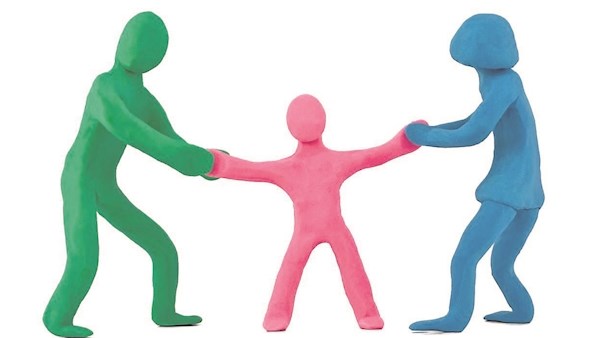 How to protect a child from trauma and get out of the crisis yourself?
How to protect a child from trauma and get out of the crisis yourself?
...Children who have been subjected to alienation syndrome sincerely hate the second parent, consider him a "fiend", a man without a single dignity. Children amnesize (forget) all the good things that connected them with their parent, they are sure that “nothing good has ever happened”.
Children with alienation syndrome behave violently towards the second parent and do not feel guilty about it. Such children are not interested in hearing the point of view of the victim parent. No logical arguments work on children. Surprisingly, all this can develop against the background of an excellent relationship with the parent until the moment the syndrome appears.
This phenomenon was discovered by a child psychiatrist and forensic expert Richard Gardner , who has worked extensively with family conflicts for several decades. The essence of the phenomenon is that one parent programs the child with hatred for the other parent.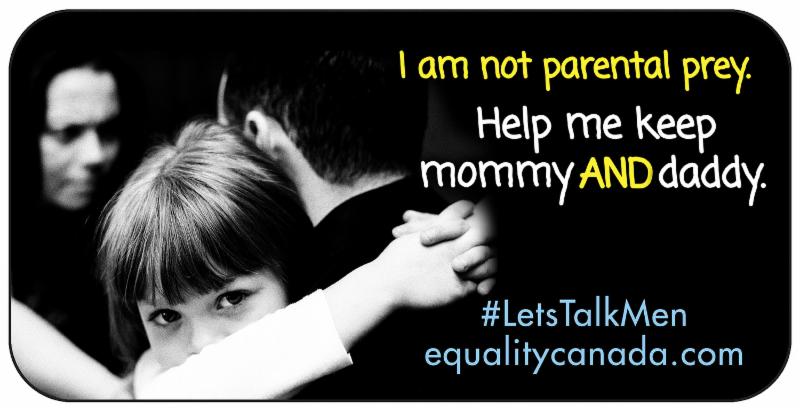 As a rule, the initiator of hatred is the custodial parent. Through his actions, the child's love for the other parent is replaced by contempt, hatred, and cruelty. The purpose of the action is to completely destroy the emotional connection of the child with the second parent.
As a rule, the initiator of hatred is the custodial parent. Through his actions, the child's love for the other parent is replaced by contempt, hatred, and cruelty. The purpose of the action is to completely destroy the emotional connection of the child with the second parent.
The provocateur parent puts psychological pressure on the child to speak ill of the other parent. Manipulations of any caliber are used: from caresses and gifts to beatings, intimidation, blackmail, objective influence. In this scenario, it is pointless to ask the child: with whom do you want to live? Who do you love? The child is a hostage to the pressure and objective authority of an adult, and in order to psychologically survive, he will say "what is supposed to be."
In essence, the process of alienation is a sophisticated methodical emotional abuse. Introducing the child to the actions of psychological destruction of the second parent, the parent-inducer “binds” the child to himself in the same way as a provocateur puts a knife into the hands of a doubter with a firm: “Finish it!” And the one who finishes off is forced to justify his actions with the alleged justice of the punishment.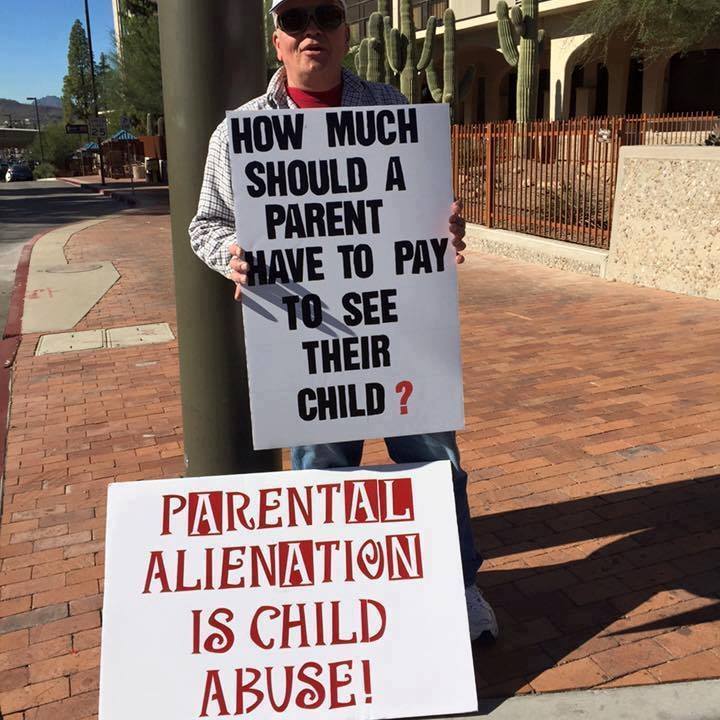 He simply has no other choice.
He simply has no other choice.
In clinical terms, parental alienation syndrome is a variant of pathological adaptation to the conscious (or unconscious) manipulation of the parent-inducer. And when a psychologist is faced with a similar situation, he needs to study the personal characteristics of not only the child himself, but also each parent, which is technically possible only when conducting a comprehensive psychological and psychiatric examination of the participants in the trial.
The alienating parent's personality disorder is rarely visible to the "naked eye", at 99% of cases require clinical and psychological diagnosis. The most severe cases of alienating behavior (eg, child sexual abuse slander) are associated with the manipulative parent's personality disorder or mental illness
A child who lives with a parent provocateur often has neurotic symptoms, anxiety, fears, behavioral problems, depression, somatic symptoms, and marginal psychopathy may develop.
Studies of growing children separated from one of their parents due to alienation have shown that they have forever retained personality traits:
- tendency to depression and depression as such;
- low self-esteem;
- guilt;
- distrust of oneself and others, insecurity;
- problems with partners in adult life.
An analysis by Parent-Child Forensic Analyst Amy Baker found that in adulthood, alienated children themselves were also "cut off" from their own children by their partners. I conclude from this that the pattern of dependency (from the inductor parent) learned in childhood forced these people to form alliances with manipulative partners who have the potential for alienating behavior. As a result, they again became its (syndrome) victim.
As a rule, the parent - the provocateur of the syndrome has a personality disorder, in other words, is a psychopathic personality (using the old terminology). However, as practice shows, before the divorce, he could behave in a completely adaptive and satisfactory manner. This does not quite fit into the usual concept of a "psychopath", whose pattern of behavior should be guessed earlier (conflict, periodic social maladjustment, difficulties in maintaining relationships, affectively conditioned thinking). But there are other traits of the psychopathic personality: using the other parent (and your child) without empathy, without remorse, without regret. Ignoring the developmental needs of their child, the manipulative parent solves his emotional problems (cause maximum harm to the former partner in any way and arrange a comfortable life for himself).
However, as practice shows, before the divorce, he could behave in a completely adaptive and satisfactory manner. This does not quite fit into the usual concept of a "psychopath", whose pattern of behavior should be guessed earlier (conflict, periodic social maladjustment, difficulties in maintaining relationships, affectively conditioned thinking). But there are other traits of the psychopathic personality: using the other parent (and your child) without empathy, without remorse, without regret. Ignoring the developmental needs of their child, the manipulative parent solves his emotional problems (cause maximum harm to the former partner in any way and arrange a comfortable life for himself).
I have already described above that the "injured" parent should try as much as possible to develop independent thinking in the child, ask him questions that appeal to a critical assessment. Whereas the alienating parent seeks to stifle as much as possible the child's ability to think and make decisions independently. He demands excessive attachment to himself, uses emotional blackmail and does everything possible to subdue the will of the child (forms emotional dependence). As a result, the personality of the child is disabled.
He demands excessive attachment to himself, uses emotional blackmail and does everything possible to subdue the will of the child (forms emotional dependence). As a result, the personality of the child is disabled.
This is done in order to obtain psychological and material benefits. It is easy and pleasant for a parent provocateur to feel that he can, at his own discretion, raise a child as he pleases, not be hampered by the need to compromise on the schedule, regimen and, in general, the child's pastime. The parent provocateur gets moral pleasure from trampling the former partner into the mud and from the feeling of his own power.
Such a parent is indifferent to what inflicts trauma on the child, which will affect his entire future life, because he also considers the child not as a person, but as his appendage. He explains his behavior simply: “Yes, there is no injury and there will not be, everything is normal with the child. We (with a child) do not need this negligent father / insignificant mother, let him stay away.
Such an adult sees a child as a way to satisfy his emotional needs. The child becomes a narcissistic extension of the father or mother. A wonderful observation was made by one of the family psychologists: “If a child positions himself “above the parent”, this is because the child “stands on the shoulders” of the other parent. If you, as a specialist, observe such a situation, this is a direct indication for checking for the presence of alienation syndrome.
One type of personality disorder that manipulative parents have is narcissistic personality disorder. It should not be confused with the epithet "narcissus", which is popular in everyday life. In the everyday sense, "a narcissist is a narcissist." Narcissistic personality disorder is a clinically significant pathology characterized by a global pattern of grandiosity of the self, a lack of empathy for others, an increased dependence on external evaluations, and an exploitative style of dealing with people. This is a persistent and profound impairment of perception and understanding of oneself, people and the world, which leads to inadequate and rigid patterns of mental activity, emotional experience and behavior. Pathology manifests itself especially clearly in interpersonal relationships (exploiting style of attitude towards others).
Pathology manifests itself especially clearly in interpersonal relationships (exploiting style of attitude towards others).
The best way to confront the problem is to understand in a timely manner that systematic actions are being taken to tear the child away. In my practice, as a rule, the parent-victim realizes the problem too late, when they can no longer do it on their own and need to involve lawyers. Then the question arises of the need to write a conclusion of a psychologist and psychological examination. The victim parent himself needs constant support in the fight against monstrous chronic pain so that he does not despair and so that his behavior does not become deeply reactive ("how I am treated - this is how I feel"). The help of a specialist is needed so that a feeling of helplessness and depression does not form. Of course, it is difficult to support in the absence of objective hopes for improvement, but the passivity of behavior only exacerbates the alienation of the child and is for him a confirmation of the thought “my parent left me and cares little about me - I thought about him like that. ”
”
Psychological assistance centers can become a place for the transfer of a child (by court order) “from hand to hand” from one parent to another. Otherwise, with a strongly pronounced alienation syndrome, the parent-victim will not be able to exercise his right in court to communicate with the child in one schedule or another. In my practice, there was a case when a manipulative father held his daughter on his lap, when the victim mother came to pick up the child in order to spend time with him due to the court. Both the father and the estranged child mocked the mother, called her "stinky" and humiliated her in every possible way. The court's decision to transfer the child in accordance with the approved schedule was never implemented. Therefore, the world experience of judicial practice (except Russia) uses psychological assistance centers as a platform where, under the supervision of a specialist, a child is transferred from one parent to another. And this is justified and correct.
Such an approach is also sparing for a child who is, as it were, “hostage” by a provocateur parent. The alienated child can go to the second rejected parent without feeling guilty before the idealized parent. "he was forced."
In this case, the child is not afraid of sanctions from the parent-manipulator, since the meetings with the second parent were allegedly organized under pressure. In fact, the alienated child wants to see a second parent (except in situations of severe alienation), but hides this desire even from himself. The manipulative parent knows perfectly well that the best cure for his manipulation is good communication between the second parent and the child. For this reason, the provocateur parent maximally prevents any communication with the humiliated parent and his relatives. In my practice, there was a case when an inductor parent forbade his daughter to be friends with an old friend (with whom the relationship lasted for several years in a row) only because he saw how the victim parent greeted the mother of the child's friend.
